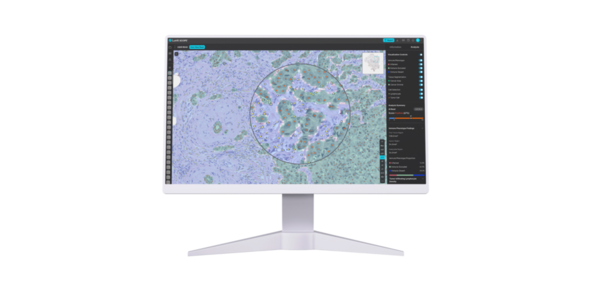Lunit, a medical artificial intelligence (AI) company, said a study predicting colorectal cancer recurrence and treatment response using its AI biomarker, Lunit SCOPE IO, has been published in npj Precision Oncology (IF 10.123), a sister journal of Nature.
Tumor-infiltrating lymphocyte (TIL) density is an important biomarker of cancer treatment prognosis. However, clinicians' manual measurement of TIL density is time-consuming and can lead to inter-observer variability.

In the study, researchers evaluated the density of intratumoral TILs (iTILs) and stromal TILs (sTILs) in colorectal cancer patients using Lunitoscope IO to determine the predictability of cancer recurrence and survival outcomes. The analysis used the slide images of 289 patients with stage 2 and 3 colorectal cancer treated at Seoul National University Bundang Hospital between 2009 and 2012.
In the study, sTIL density was significantly lower in 28 patients with recurred cancer.
Besides, when the researchers divided patients into four groups based on sTIL density, they found that the top 25 percent of patients with the highest density had the lowest five-year recurrence rate (1.4 percent). In contrast, the bottom 25 percent had a recurrence rate of 17.2 percent, confirming a trend toward higher recurrence rates with lower sTIL density and a significant association with recurrence-free survival.
Lunit concluded that sTIL density measurement using Lunit Scope IO could effectively predict colorectal cancer recurrence.
Using the results of the Lunit Scope IO analysis, the researchers categorized patients into three groups -- high-risk, intermediate-risk, and low-risk for recurrence -- and found that the risk of recurrence in the low-risk group was reduced to a hazard ratio (HR) of 0.11 compared to the high-risk group, suggesting that the classification system using Lunit Scope IO may be effective in prognosis.
"The recurrence rate of stage 2 and 3 colorectal cancer patients is about 20-30 percent, and AI-based recurrence prediction will play an important role in improving the survival rate and quality of life of these patients," Lunit CEO Suh Beom-seok (Brandon Suh) said. "This study provides important information for personalized treatment strategies and clinical decisions. Lunit will continue to lead the way in using AI to provide new directions for cancer treatment."
Related articles
- Lunit's chest X-ray AI imaging solution to be reimbursable from March 2024
- Lunit's AI-powered 3D breast tomosynthesis solution earns FDA clearance
- Lunit, CancerX leverage AI-powered solutions to reduce financial toxicity for cancer
- Lunit agrees with MD Anderson on AI-based research of immunotherapies’ efficacy
- Lunit to acquire Volpara Health for $193 million to expand AI cancer screening in US
- Lunit inks $1.86 million deal with Samsung to supply AI solutions for chest X-ray reading
- Lunit's AI-based lung nodule detection outperforms competitors

